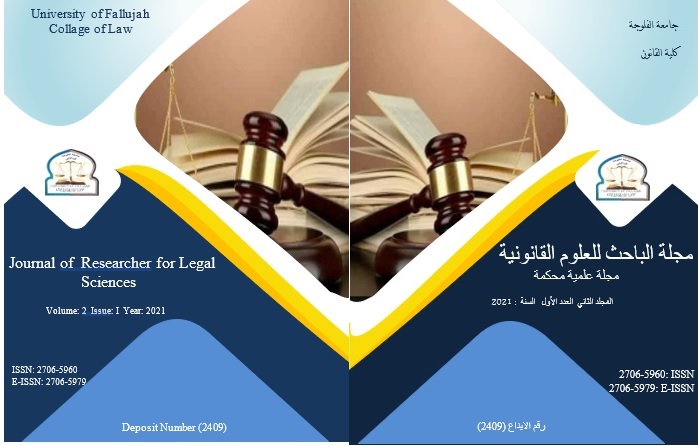صلاحية المحكمة في اصدار الحكم الغيابي بحضور أحد الخصوم وغياب الآخر عن جلسات المرافعة (دراسة أصولية مقارنة)
Doi:https://doi.org/10.37940/JRLS.2021.2.1.7
الملخص
قد يحضر المتخاصمان جلسات المرافعة وهنا لا تواجه المحكمة مشكلة أو تعطيل في سير الدعوى فبعد أن تتأكد من أشخاصهما وصفاتهما في الدعوى تشرع في نظر الدعوى ويعتبر الحكم الذي تصدره المحكمة في هذه الحالة حكماً حضورياً بحق كليهما ويكون هذا الحكم قابلاً للطعن به بكافة طرق الطعن العادية وغير العادية ماعدا الطعن بطريق الاعتراض على الحكم الغياب، هنا وعند غياب أحد الخصوم وحضور الآخر في جلسات المرافعة، فما هي صلاحية المحكمة في المحكمة في إصدار الحكم الغيابي، هذا ما نستعرض له في هذا البحث عن طريق تطويع المفهوم الأصولي لألفاظ مواد الحكم الغيابي والاعتراض عليه




